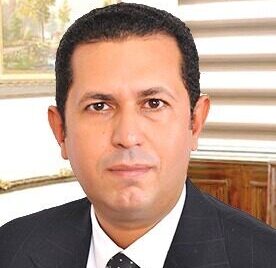The development diplomacy adopted by Egypt’s leadership continues its movement in all directions to serve development based on promoting promising investment opportunities in Egypt.
Accelerating on the path of development is one of the objectives of Egypt’s foreign policy. At a time when the world is faced with melt-down due to the repercussions of the crisis in Ukraine on the global economy and the coronavirus epidemic, Egypt has managed to create for itself a unique status at regional and international levels by establishing a network of strategic relations and diversifying its economic partnerships with advanced countries.
When he took office in 2014, President Abdel Fattah El Sisi laid down the rules of his foreign policy which is based on mutual respect between countries, non-interference in other countries’ internal affairs, building partnerships, supporting regional and international level peace and stability, abiding by international law, committing to agreements and conventions, and taking national decisions independent of external influences.
Throughout the last eight years, Egypt has actually reaped the fruits of its foreign policy and diplomatic moves at bilaterally and multilaterally. Thanks to our foreign policy, Egypt has taken centre stage globally, gaining the attention of world leaders who have become keen on establishing partnerships with Egypt.
President Sisi’s meeting last Sunday with the Romanian Prime Minister Nicolae Ciucă reflects the Egyptian leadership’s interest in opening new horizons of co-operation in different fields between the two countries. This definitely contributes to diversifying and securing the supply sources, especially in the domains of energy and food security, amid the Russian-Ukrainian crisis. During the meeting, Romania was invited to benefit from investment opportunities in Egypt, notably in the Suez Canal Economic Zone that serves Romania’s target of economic expansion through a gateway to several foreign markets.
Egypt’s policy of diversifying its foreign relations in all directions will greatly influence investment inflows into competitive sectors. This will certainly support Egypt’s productive capacities and push up economic growth.
One day after meeting the Romanian Prime Minister, President Sisi received his Croatian counterpart Zoran Milanovic. Both sides showed interest in consolidatins ties in view of Egypt’s status in the Middle East and Mediterranean regions, as well as Croatia’s pivotal role within the European Union and its political support for Egypt in many issues.
Both presidents agreed on strengthening tourism and investment ties to face challenges imposed by the world economic crisis.
The Croatian side was invited to establish industrial zones in Egypt to benefit from the country’s free, preferential trade agreements with Arab and African countries. This should facilitate the access of Croatian products into the markets of these countries with a competitive advantage.
Croatia was also encouraged to invest in Egyptian energy and benefit from the remarkable progress achieved in this field through new gas discoveries in the East Mediterranean zone and the establishment of the Cairo-based East Mediterranean Gas Forum (EMGF). This is in addition to Egypt’s efforts to localise the green hydrogen industry and boost the renewable energy sector by establishing solar plants in Benban Solar Park in Aswan and wind farms in areas such as Gabal el-Zeit area.
Egypt’s diplomatic moves north, east, south and west are intended to protect Egypt’s interests, maintain its national security and fulfill its peoples’ ambitions for development and prosperity – all deserve appreciation and respect for Egyptian leadership.
Mohamed Fahmy is the editor-in-chief of The Egyptian Gazette and the Egyptian Mail newspapers






Discussion about this post